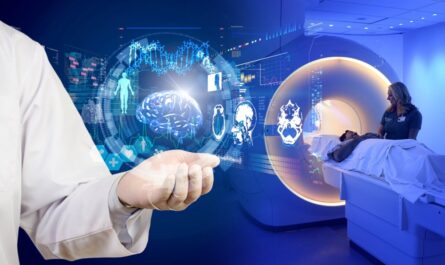Development of Biosimilars
Biosimilars are biologic medicines that are developed to be similar to an already approved biologic drug, known as the reference product. While biosimilars are similar to their reference products, there are minor differences in terms of variability in inactive components which are unavoidable due to biological nature of these drugs.
To obtain regulatory approval, a biosimilar must show it is highly similar to the reference product in terms of quality characteristics, biological activity, safety and efficacy based on a comprehensive comparability exercise. This involves extensive structural and functional analyses including analytical, nonclinical and clinical studies.
The clinical development program for a Biosimilars typically includes a pharmacokinetics/pharmacodynamics study and efficacy and safety studies only of sufficient size to demonstrate biosimilarity rather than repeating full clinical development program of the reference product. This expedited development pathway aims to reduce costs as well as animal and human exposure to these complex biologics without compromising on quality, safety or efficacy requirements.
Regulatory Standards for Approval of Biosimilars
Stringent regulatory standards are in place worldwide for approval of biosimilars. In the United States, the Biologics Price Competition and Innovation Act of 2009 provides a pathway for FDA approval of biosimilars. The European Medicines Agency also has wellestablished evaluation and approval processes for biosimilars.
The World Health Organization has also published guidelines on evaluation of similar biotherapeutic products which serve as a framework for national regulatory authorities across many countries to develop their own biosimilar approval pathways based on international standards of quality, safety and efficacy.
In India, the Central Drugs Standard Control Organization follows a step-wise science-based biosimilarity assessment approach involving comprehensive analytical, nonclinical and clinical evaluation as per WHO guidelines to ensure approved biosimilars match the reference product in terms of quality, safety and efficacy.
The high similarity established between a biosimilar and its reference product through a rigorous comparison exercise provides assurance on long term safety and immunogenicity of biosimilars to healthcare providers and patients.
Role of Biosimilars in Improving Access and Affordability
One of the key goals of biosimilar development is to provide more treatment options and increase access to lifesaving biologic medicines at potentially lower costs than the originator products. With patents expiring on many blockbuster biologics, biosimilars present an opportunity for healthcare systems globally to achieve significant cost-savings.
Some key advantages of biosimilars include 20-30% lower prices compared to originator biologics which can free up healthcare budgets. This allows for these resources to be reallocated for patients’ access to other innovative as well as generic drugs. With increasing biosimilar competition, prices of reference products may also decline over time.
Since the first biosimilar approval in 2006, many countries have embraced biosimilars as an important strategy in improving access to biologics. In the European Union alone, biosimilars accounted for over 20% of dispensed biologics volume in 2020 resulting in savings estimated at over €16 billion since first launch. Significant cost reductions have also been achieved in the US through biosimilar approvals and adoption.
In India, several biosimilars have been approved in recent years including versions of trastuzumab, rituximab, bevacizumab and insulin glargine offering treatment alternatives at significantly lower costs. This has enabled public and private sector programs in India to expand access to biologic cancer and diabetes care. With a robust biosimilar approvals process in place and growing indigenous manufacturing capabilities, India is well-positioned to play a leading role in expanding global biosimilar supplies.
Challenges in Biosimilar Uptake
While offering promising public health benefits, widespread adoption of biosimilars faces challenges related to physician and patient acceptance, existing business models and policies that unintentionally limit competition and market entry.
Some of the concerns among healthcare providers relate to extrapolation of clinical data, pharmacovigilance due to uncertainty on long term safety and immunogenicity risks despite stringent biosimilarity standards. Educating providers and patients continues to remain important for acceptance of quality-assured biosimilars.
Policies that limit automatic substitution of biosimilars at pharmacy level or restrict competitive market access has also limited uptake in some healthcare systems despite potential for enhancing cost-savings. However, many countries continue to support expanded use of biosimilars in medication formularies and reimbursement policies based on evidence of similar clinical outcomes to reference products.
Manufacturers too face complexities in manufacturing scale-up, ensuring consistent quality and supply as well as business challenges due to existing stakeholder dynamics and payer incentives skewed against biosimilars. Global standards aim to reassure stakeholders while policies aim to open biosimilar access but adoption remains uneven.
Closing Thoughts
with effective regulation and policies aimed at enhanced competitiveness, biosimilars can play an important role in enabling access to biologic therapies for many more patients globally. Building on the experience of successful early entrants, current and future generations of approved biosimilars reflect the evolution of analytical and clinical evaluation capabilities. This should help address some existing uncertainties among practitioners and patients. With supportive scale-up of manufacturing, supply chain strengthening and aligned stakeholder interests, biosimilars potentially present an affordable solution to treat many prevalent diseases over the next decade.
*Note:
1. Source: Coherent Market Insights, Public sources, Desk research
2. We have leveraged AI tools to mine information and compile it.



